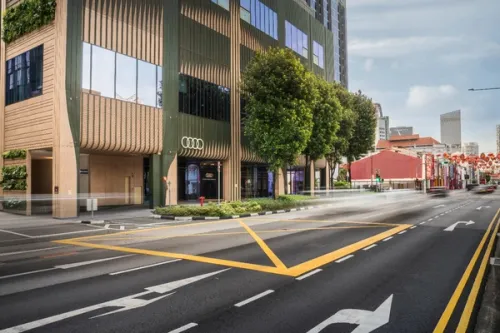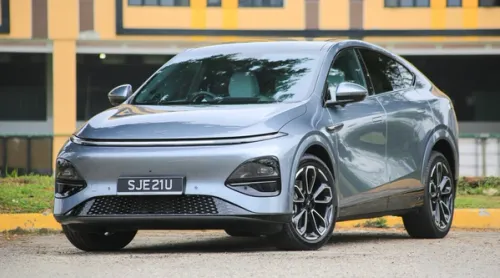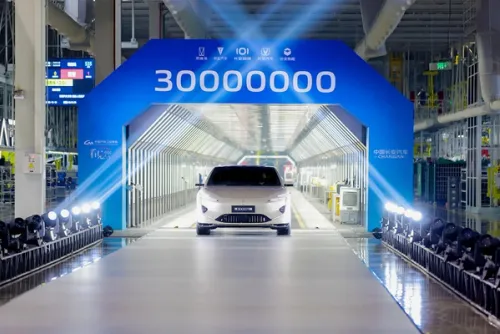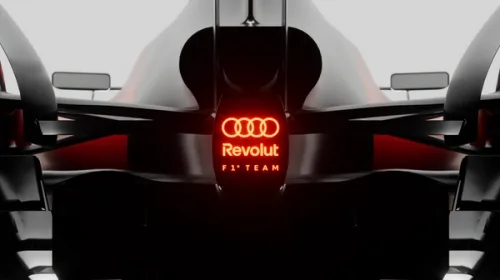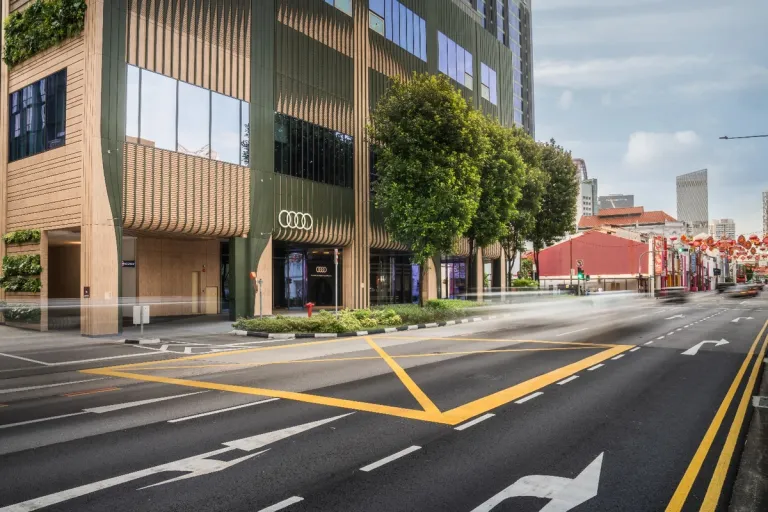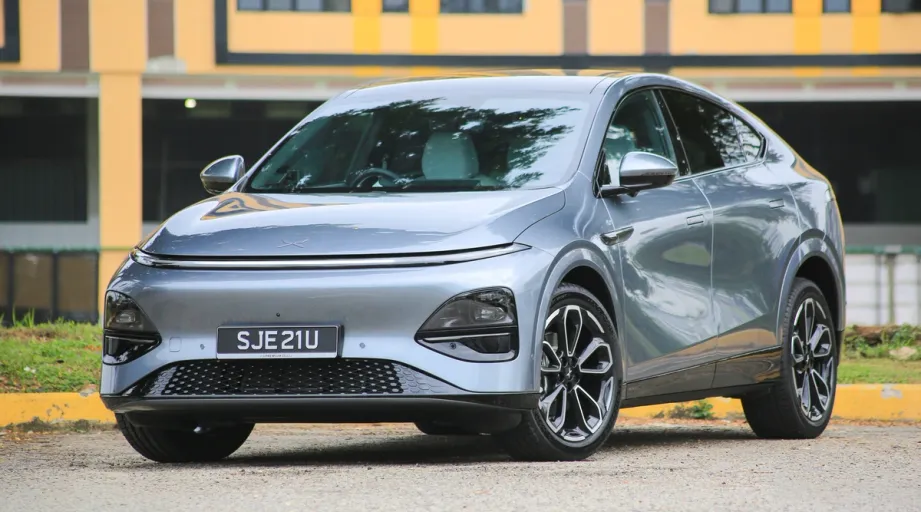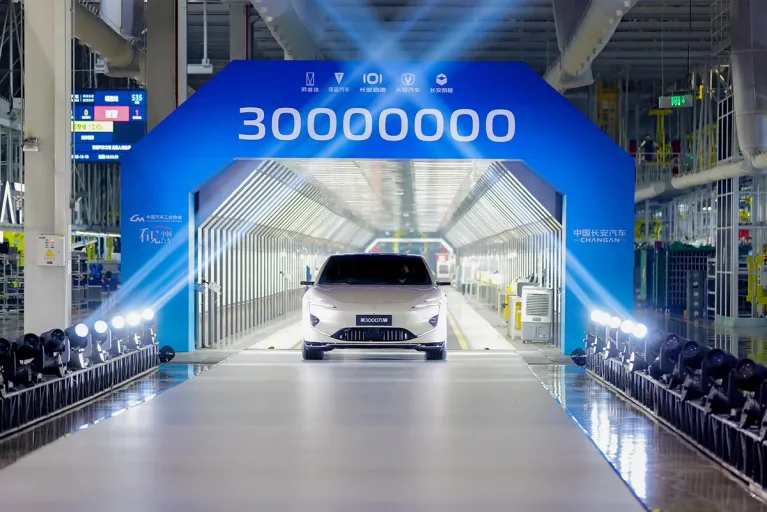Don't buy your first used car without knowing these 5 key facts
Even with the low COE prices, used cars are still more affordable than the brand new ones. Maybe you are someone who needs a car for your job but do not wish to spend too much for a car. Or are a first time drivers who may wish to purchase a used-car that has just one year left to familiarise with the Singapore roads before putting down that huge down payment. Purchasing a car is a mammoth decision and you should definitely read these 5 key facts before you get that cashiers’ order…

Even with the low COE prices, used cars are still more affordable than the brand new ones. Maybe you are someone who needs a car for your job but do not wish to spend too much for a car. Or perhaps you are a first time driver who may wish to purchase a used car that has just one year left to familiarise with the Singapore roads before putting down that huge down payment.
Purchasing a car is a mammoth decision and you should definitely read these 5 key facts before you get that cashiers’ order…
Whenever you make the decision to purchase a used car, this would be one of the dilemmas that you’ll be pondering over… So what are these acronyms and what essentially are the differences?
A quick explanation would be that the Preferential Additional Registration Fee (PARF) cars are cars that are still using their first 10 years of original Certification of Entitlement (COE) while COE cars are those that are above 10 years of age and have renewed their COE. To find out more about the difference, read our article on Buying a Used Car – PARF car vs COE car.
Instead, calculate the depreciation of a car. The price of the car includes the PARF value that you will get back when you scrap the car if you are purchasing a PARF car. As a general guide, continental cars tend to have higher PARF values than Asian cars. Therefore, a 20k Toyota may not necessarily be cheaper than a 22k Volkswagen.
To calculate the depreciation of a car,
DEPRECIATION = (Selling Price - PARF benefit) / number of months left on COE
Do note that this depreciation does not take into account the interest of your loans (if any).
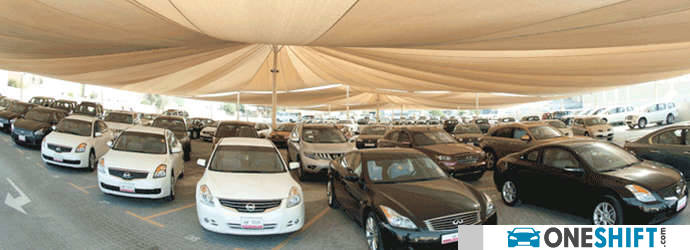
After deciding which car to purchase you will need to shop for one! To purchase a used car, you can search through our listings to find a direct seller, look for a consignment car, or even buy a used car through a used car dealer. There are pros and cons to each of these methods to purchasing a used car and you should definitely select one based on your needs.
Purchasing from a Car Dealer usually means that you’ll get a used car that is refreshed and revitalised such that it is in quite a pristine condition. Used car dealers would have already spray-painted the cars and treated the leather in the interior of the car (if any). Hence, you’ll get a aesthetically pleasing car when you purchase from them.
In addition, purchasing from a Used Car Dealer would also mean that you are protected by the . The Lemon Law took effect on 1 September 2012, which protects consumers against goods that are not of satisfactory quality or performance standards at the time of the delivery, or those that do not conform to contract when purchasing from a business. Under this law, corporations are obligated to repair, replace, and reduce the price, or even provide a refund for a defective product, or what is usually called a “lemon” (You can read more about the lemon law here). However, do note that for used cars, the “satisfactory quality” would have to take into account the car’s age as well as the price paid for the vehicle.
Since this law is only effective for products sold by businesses to consumers, consignment cars are not protected under the lemon law as consignment car dealers only aid in the process but do not gain ownership of the car at any one point in time.
That being said, you are not entitled to any remedy actions under the Lemon Law if you have:
- damaged the item
- misused the item and caused the fault,
- tried to repair the item yourself or had someone else attempt to repair in and in the process damaged the used car
- been told of the fault before you bought the used car
- changed your mind about the purchase and no longer wish to have the car
- the fault is a result of wear and tear
Because of these exceptions, some may veer away from the purchase of used cars. Then, I would say, when you purchase a used car, as a secondary protection, look out for car dealers with .
CaseTrust is the accreditation arm of the Consumers Association of Singapore (CASE) and corporations that bear this accredition has openly demonstrated their commitment to fair trading to transparency to their consumers. Even though the Consumers Association of Singapore helps to handle complaints of any corporation, corporations with the CaseTrust accreditation would tend to be more cooperative in trying to resolve the issue.
Alternatively, if you don’t mind paying slightly more, you can also purchase a from car dealers like Republic Auto that tend to come with additional warranties (yes, even with a used car).
Even if you have ensured that you’ve got your back covered with the Lemon Law and CaseTrust car dealer, or even purchasing a certified used car, it is still necessary to do your due diligence in checking the condition of the car. To learn more on what exactly to check for, read our guide on car shopping and the tips and tricks of the trade to protect yourselves!
Do also take note that there may be some sneaky dealers who may list their cars on various sites and leave out the portion that the car is a consignment car (true story, happened to me! :(). Before you head down to the car dealership, you should then explicitly ask to make sure that the trip down is worth your time!
So what then is the difference? Consignment cars are cars that are owned by a seller who has appointed a dealer to help them market the cars in the used car market. As such, consignment cars are often in their as-is states and are not “beautified” as compared to used cars from car dealers.
The advantages then of purchasing a consignment car is that you may be able to pay lower prices than if you purchase the same car from a dealer. This is because these cars are not “treated” and you’ll often have to then spend additional cash to service and reinstate the cars to your satisfied state. Even though it is still possible to purchase a used car that is in “move-in” condition, just like a resale flat, unless you are satisfied with the as-is conditions and do not mind not having the added assurance from the lemon law, then purchase away!
Purchasing from a direct seller gives you plenty of room to negotiate and speak directly with the car owner. This may be great especially if you know of a friend’s friend that is intending to sell the car. Having such connections may be slightly more advantageous than to purchase it from a stranger (used car dealer or consignment car dealer representing a random car seller).
However, this can be troublesome as you may need settle your own paperwork, purchase insurance, and communicate with the bank for your loans.
Based on these, select wisely on how you are intending to purchase your used car.
It is always good to send your prospective used car for evaluation. Even though this may mean forking out an additional few hundreds, it will help to give you a piece of your mind.
However, do note that there are various evaluation centres and you do need to carefully consider which you would want to send your car to.
For instance, STA and VICOM will provide a grading for the used car. Most car dealers, consignment car dealers, and even direct sellers would not hesitate if you would like to send your car to these evaluation centres but will get you to put down in writing that you will purchase the car if the result is above B/C.
However, veterans would know that these evaluation with a resulting A, B, C grade tell you little about the actual condition of the car. Should you want to send it for an evaluation, you may want to consider the Automobile Association Singapore (AAS) evaluation where they will be a written report of the vehicle. For instance, the problems will be stated as shown below:
ENGINE
- RHS of engine block damped with oil, probable oil leakage or seepage
- Check engine coolant content
- Drive belt crack
BODY
- Vehicle undergone spray painting
- Signs of probable repair at rear panel of vehicle (see photo 1 and 2)
ELECTRICAL
- Remote key not working
ROAD TEST
- Slight vibration could be felt when vehicle is stationary
LIGHTING
- Both rear lights not working
Wouldn’t this give a better report of the condition of the car (just saying)?
Asking to send the car for an evaluation is also a good check whether or not the person you are buying the car from is honest and open about the condition. If your car dealer, consignment dealer, or even the direct seller does not agree to send the car for an evaluation, WALK AWAY!
This particular one is especially important to note if you are purchasing from a used car dealer or a consignment car dealer. Usually, these dealers will offer to help you with the car insurance and loans because they will earn a slight commission from it.
That being said, we’re not saying that you should not let them earn that commission, as that is how they make a living. But, you will need to do your due diligence to ensure that you are not ripped off!
There are a plethora of car insurers in the market and car dealers often recommend the insurer that will give them the highest commission, sometimes at the expense of the cost that you will pay for the insurance.
However, opting out of this car insurance would sometimes incur an admininstrative charge or levy that will cost roughly that of the commission that the car dealer would receive. Hence, the cost of buying the car insurance through the dealer may end up being the same as if you were to find your own insurer and paying the levy (tried and tested).
So what we’re actually saying is to just double check to see which of the above is a better option for you and do ensure that the insurer is legitimate and credible.
If you do need help to research for car insurance or even purchasing your own car insurance, Oneshift can help you to get car insurances at competitive prices!
When your used car dealer or consignment dealer offers to help you with the loans, do double-check that these are the loans that you are looking for.
Sometimes, these dealers may offer you in-house loans. In-house loans or in-house financing is basically when dealers borrow a huge sum of money from the banks and then offer smaller portions of it to their customers, aka you. These loans usually take shorter time to process but they often come with higher interest rates than normal car loans from the banks. So aside from agreeing that they would handle the loans for you so that you won’t have to fret from the mountain of complicated paperwork, do ask and ensure that you know exactly how much is the interest rate that you are paying. We do recommend loaning from the bank as far as possible as they are more credible and are stringent with their loan application.
If you are purchasing a COE car and will need a COE Renewal Loan, Oneshift works with MAS regulated banks to get you loans with the lowest rates.
Honestly, there is just so much to read and research about when purchasing your first used cars and we hope we’ve helped you to uncover most of them! Especially for first-time used car buyers, you must know all these 5 facts before you hand over that cashiers’ order.
Credits:


Get the Best Price for your used car
from 500+ dealers in 24 hours

- Convenient and Hassle-Free
- Consumer Protection
Transparent Process
With No Obligation
